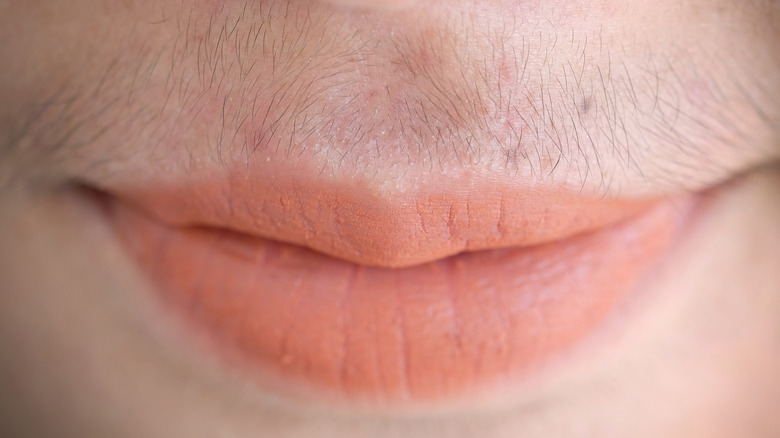When Should You Be Concerned About Facial Hair Growth?
Contrary to the popular notion that women should have hairless skin that is as smooth as a porpoise, many females are born with or later develop hair on their faces, particularly on the chin, along the jaw, or above the lip. This can come in the form of peach fuzz or even some dark strands here and there. Byrdie points out that this kind of facial hair growth is completely normal and nothing to worry about, but at times, a woman may have thick, coarse hair on her face because of an underlying health condition.
WebMD defines this excess hair growth in women that looks similar to that in males as hirsutism. If you have this condition, you may notice excess hair growth not only on the face, but on the chest, inner thighs, lower stomach, and back as well. According to a study published in the Indian Journal of Dermatology in 2010, hirsutism is a fairly common condition that affects about five to 10% of the female population.
When to worry about facial hair growth
Various factors contribute to hirsutism, including hormonal imbalance, medication side effects, long-term stress, or Polycystic Ovary Syndrome (PCOS). If you have been stressed for a long time, your body may have high levels of cortisol, which can contribute to hirsutism, according to EverlyWell.
Facial hair growth may be caused by high levels of androgens as well. Androgens are typically male hormones that lead to coarse hair production and other puberty-related changes. In females, the amount of androgen is comparatively lower than in men. However, if because of some hormonal imbalance it becomes higher, you may notice excessive hair growth, a deeper voice, and balding, among other symptoms (via Mayo Clinic). The extra hair growth occurs in a male-like pattern across the chest, back, and face.
Many women do get a bit self-conscious about extra hair growth on the face and regions that often remain exposed. If you notice any of the above symptoms along with coarse hair on the chin, thighs, and lower abdomen, talk to your doctor. They may conduct some blood tests to determine the cause, and then decide on an appropriate treatment, per Mayo Clinic. Hirsutism itself may not go away easily but if you want to, it's possible to get rid of extra hair occasionally through shaving, topical creams, or laser hair removal.


